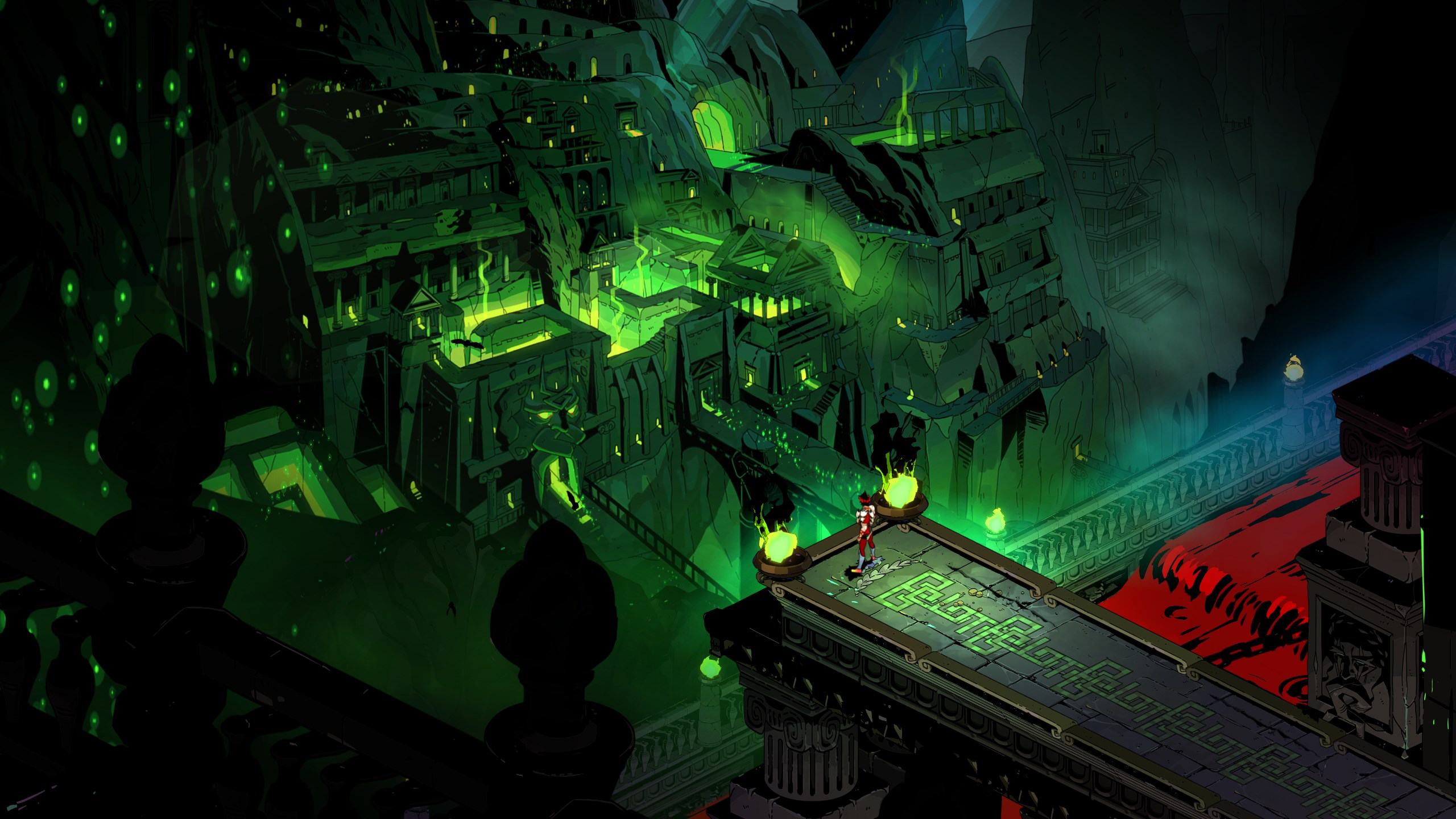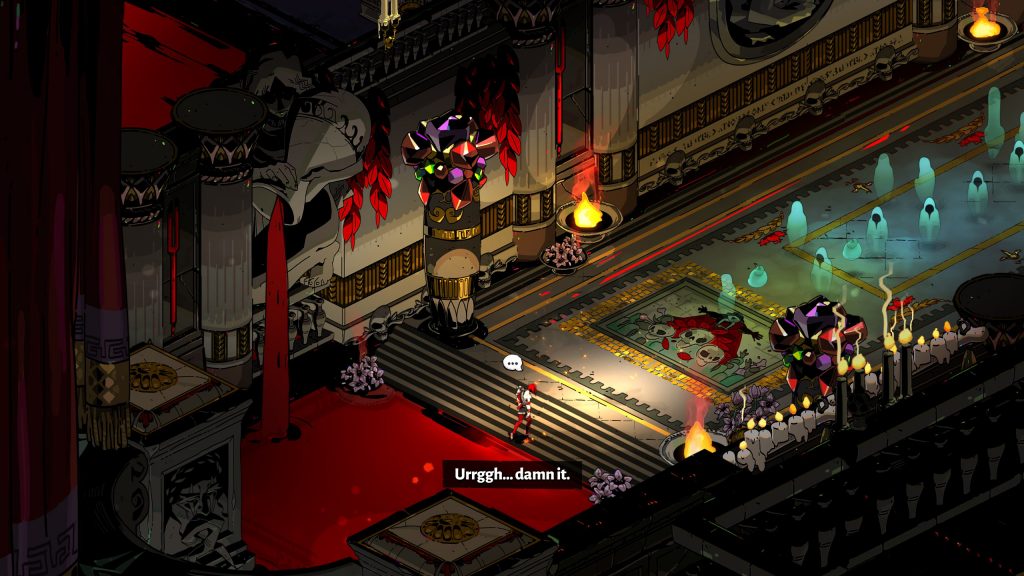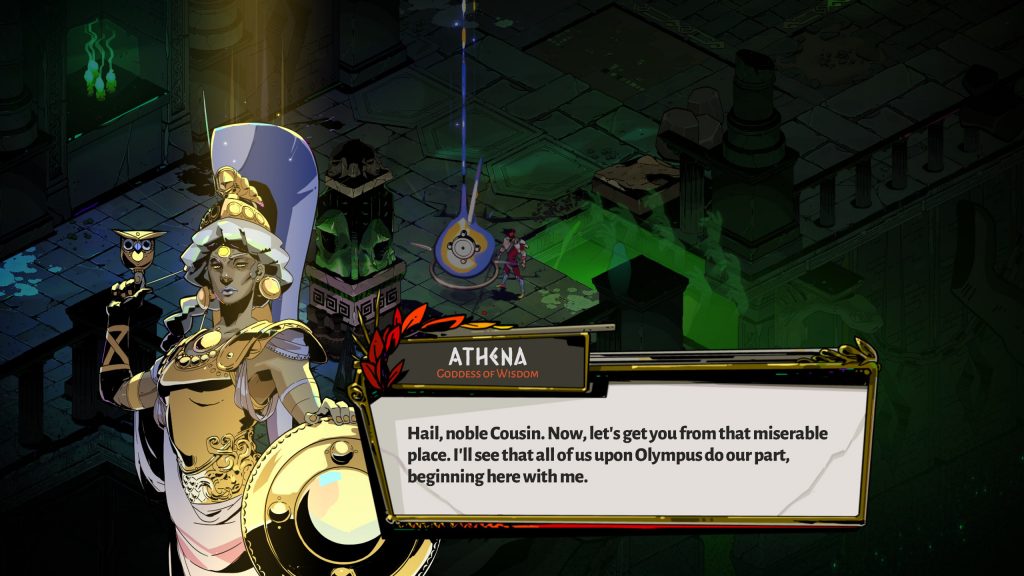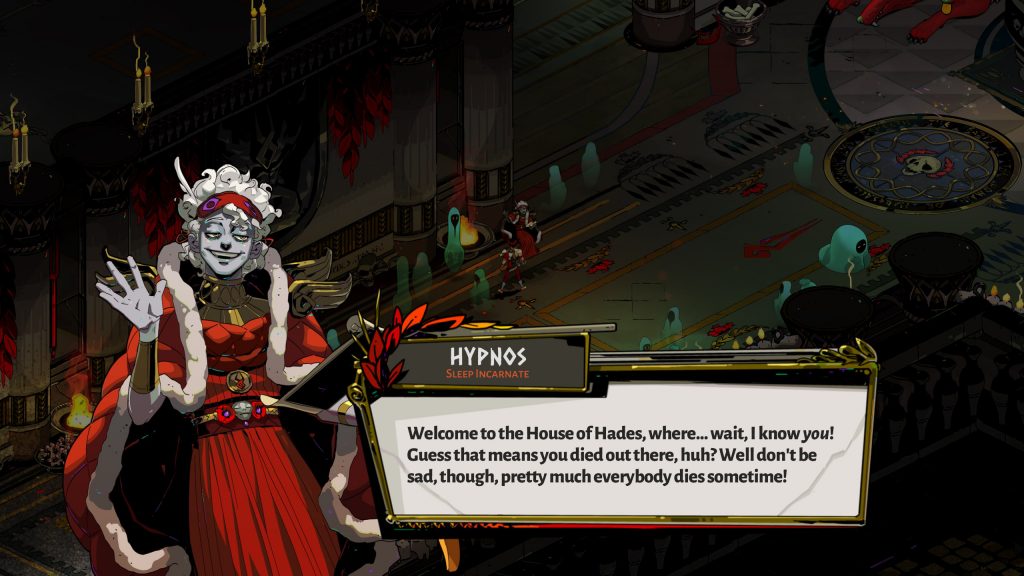
I've been a fan of Supergiant ever since Bastion. Their games have been trending in a direction that excited me. Bastion was an intriguing, but mostly familiar isometric action game. Transistor was similar, but added cool twists to the combat system. Pyre was downright weird, a mashup of visual novel, RPG, and sports game. But when Hades hit early access, it looked kind of... ordinary.
More than Meets the Eye
To some fans, it was a return to form. An action-focused game, something that the devs were excited to dive back into after crafting such an unusual experience with Pyre. To me, it seemed disappointingly "safe", a relapse to the familiar that might alienate me. I didn't want Bastion again, I wanted something weirder yet than even Pyre.

I was wrong, in a couple of different ways. First, Hades is not Bastion again. It's much more, in ways that clearly demonstrate how much the studio has grown. And second, it's not safe at all. It's in a genre space that, despite its hits, is still very niche. When Hades was announced, I was disappointed that Supergiant's next game wasn't being made for me. But that's because Hades was being made for everyone.
Making Roguelites Approachable
The etymology of "roguelite" has been dissected to death, but for the unfamiliar, "roguelike" usually refers to two things: procedurally generated levels, and permadeath (progress lost upon death). A "roguelite" has the same features, but also has overarching progression mechanics. With each attempt at the game, you'll unlock advantages or options that will help you in future attempts. While pure roguelikes are particularly punishing, roguelites have gained popularity in part because they simply feel better. Unlocking new capabilities across runs preserves a sense of progress even in the face of failure.
But favorites of even the "roguelite" variety (Spelunky, Dead Cells, Enter the Gungeon) are still reputed for crushing difficulty. Hades is a bit different; it's clear that it has reached audiences that don't typically play roguelites at all. That's partly because of a focus on storytelling, and appealing characters and art, but also because it goes out of its way to be more welcoming and less discouraging than genre contemporaries.

Hades has been striving to be inclusive for a long time. The "God Mode" difficulty modifier was a feature in the game well before the 1.0 (and Nintendo Switch) launch. An emphasis on characters, as well as a flair for making the roguelite mechanics into diegetic story elements, makes defeat more palatable. For some, the set dressing is an uninteresting detail; for others, it's the reason they're playing in the first place.
In the end, of course, Hades absolutely was still a game for me. I like roguelites, and it's a phenomenally well-executed one of those. It serves it purpose as both a genre staple and an invitation to new players.
Why You Should Play Pyre (Just Kidding)
In my heart of hearts, Pyre is still my favorite of Supergiant's illustrious catalog. But that's mainly because I enjoy things that are niche, unusual, and challenging (not necessarily just mechanically). Pyre is a game where your victories and defeats are diegetic, and the player is encouraged to roll with their wins and losses and let them inform the story. I think that's cool as hell, but it's also something most people don't want to deal with. Losing feels bad, and canonizing your defeat for the sake of telling different stories is asking a lot of the player.

Hades is not challenging in that way. It's in a challenging genre, sure, but it's filled with ways to give players encouragement (and let them cool off between runs). And ultimately, God Mode is right there for players to craft their own difficulty. It's brought a wide audience into its fold with tactful design and a even bit of friendly teasing (lookin' at you Hypnos); that alone is testament to its importance.
I almost didn't want to put Hades on my list, given how popular it already is. But it deserves it. Not just because I liked it, but because it makes inroads into a rich genre space that many casual players would typically dismiss as "not for me." It's not only a beautiful game, full of great music and lovable characters; it's also a fantastic expression of what is, and can be, so fun about roguelites.